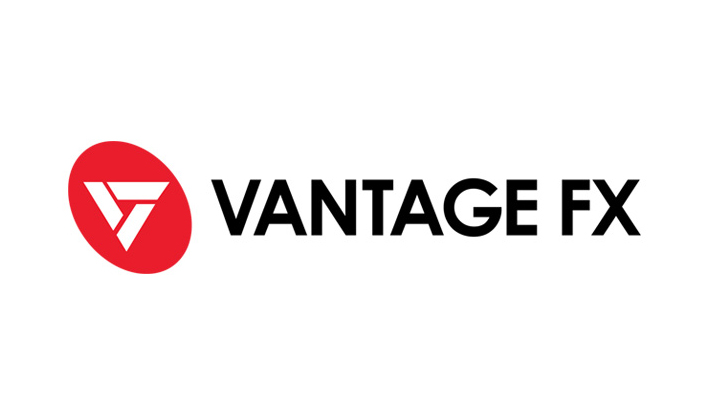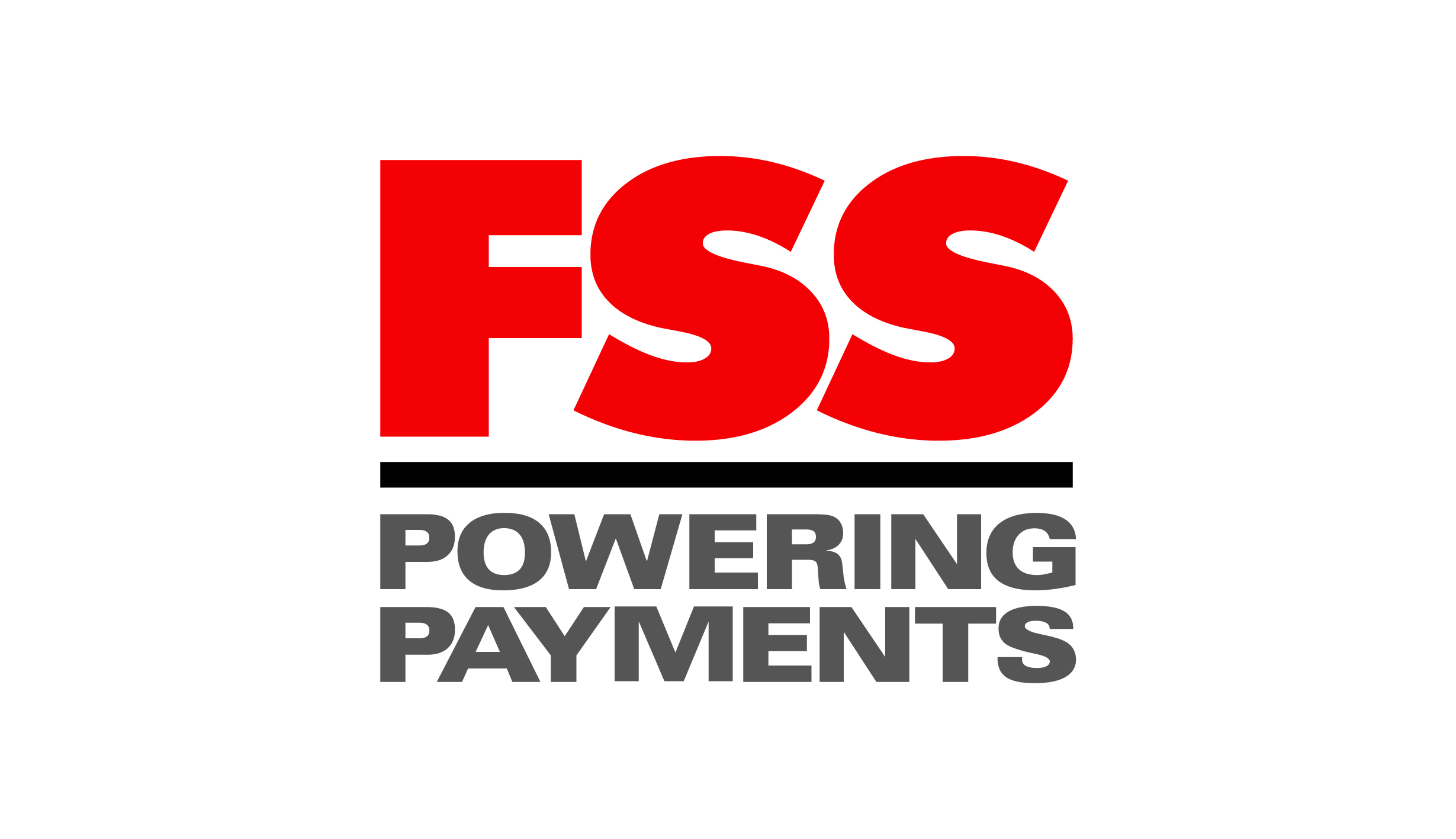Published
- 04:00 am

Federos®, a leading provider of cloud-enabled, AI-optimized assurance, analytics, and automation software that monitors and manages the performance of critical networks and services for many of the world’s largest service providers and enterprises, announced today that EWE TEL GmbH has selected Assure1® — Federos’ flagship Unified Service Assurance solution — to transform their network operations with a focus on improving operational efficiency and providing high quality services.
EWE TEL offers high-speed internet, mobile and landline telephone services, online TV, and corporate and computing center services in Germany. It is a subsidiary of the Oldenburg-based energy and telecommunications group EWE AG.
Assure1 combines fault, performance, topology, and service management into a single, unified platform, which will allow EWE TEL to detect incidents promptly and proactively across all network domains, solve service issues faster, and increase customer satisfaction.
“We selected Assure1 from Federos to leverage the solution’s real-time intelligence to understand and address any degradation of service before it impacts our customers. Our teams will be able to better understand network activities and service status in real-time so appropriate actions can be taken quickly,” said Mitja Thomas, project manager for the modernization of the OSS stack, EWE TEL. “With Assure1’s end-to-end, cross-domain view of the entire network, we expect to improve our MTTI/MTTR, which is crucial to providing outstanding customer experience.”
“We are honored to have EWE TEL select Federos to streamline its network operations environment,” said Keith Buckley, CEO, Federos. “We look forward to helping EWE TEL realize the benefits of Assure1, and are confident its new actionable intelligence will help them to simplify and transform their network operations.”
Related News
- 03:00 am

$3.5 million line of credit provides flexibility for LadyBug Farms to meet customer demand, expand greenhouse facilities and manage working capital constraints
Bespoke Financial, the nation’s first cannabis-focused fintech lender, has partnered with LadyBug Farms to provide a $3.5 million line of credit as the large-scale California cultivator expands its cultivation facilities to continue to meet the growing demand of California’s cannabis patients and consumers.
Well known as the “farm behind California’s favorite brands,” LadyBug Farms cultivates for industry leading brands such as Old Pal, Cookies, Miss Grass, Pure Beauty, Weed and Dimebag among others. Its decision to pursue debt financing was based upon a combination of factors, most notably the lack of traditional funding in the cannabis industry and a desire to avoid capital investments as a means to maintain control of the company. The line of credit is helping the longtime California business expand its existing greenhouse capacity across three locations, as well as to provide the flexibility needed to focus on its business, rather than worry about operational expenses. LadyBug Farms has been a working farm producing commercial flowers for major retailers and florists since 1947 and entered the cannabis industry five years ago.
“It’s rare to find a cannabis business with such a rich history and expansive experience in cultivation,” said George Mancheril, founder and CEO of Bespoke Financial. “We knew that LadyBug had a reputation for high quality, but we have been really impressed by the company’s strong performance to date, and how they have positioned themselves to steadily grow with the market and continually expand their customer base.”
Headquartered in Monterey, California with additional cultivation facilities in Half Moon Bay, LadyBug Farms is a cannabis cultivator, processor, co-packager and distributor supplying products to some of the state’s leading retailers and is recognized for its high quality and fair market pricing. The farm harvests cannabis five days a week throughout the year producing up to 100,000 pounds of biomass annually. It is no secret that cannabis businesses can be notoriously difficult to fund through non-equity diluting options, which can dramatically reduce opportunities to scale businesses.
“So many companies in cannabis are busy raising capital, which leaves them unable to focus on operating the business,” said Jake Brookes, Chief Operating Officer of LadyBug Farms. “Taking the debt financing route enables us to manage our expansion and growth plans while still maintaining control and giving us the flexibility to really focus on our core strengths. But our experience and longevity really provides the resources we need to handle debt during our growth, and we don’t have to worry about losing sight of our long term focus and plan to grow with the market and our partner brands.”
Related News
- 06:00 am

Vantage FX, the multi-asset trading platform for retail and professional traders, today announces the appointment of Geraldine Goh as Global Marketing Director. A key component of the company’s expansion strategy, Goh will help to align Vantage FX’s marketing and business goals on a global scale.
Goh’s appointment comes at a time when the existing retail trading landscape often does not prioritise the needs of localised landscapes, particularly within emerging markets. With a new and ambitious generation of traders surfacing across Asia-Pacific, as well as other emerging markets, Vantage FX is keen to address the shortfalls in these markets.
Her role, alongside the marketing team, will be to offer a unique approach which is tailored to each region – providing the local business development and sales teams with the tools they need to succeed in the environment they are in.
Goh brings 10 years of experience in the field, with a notable six years as Head of Marketing, Singapore and Emerging Markets APAC at IG where she led her team through multi-faceted marketing plans for the region. Now, with her global role, she will have holistic oversight to align marketing and business goals in tandem with Vantage FX’s global expansion. Goh will focus on introducing high profile partnerships, promotions, and programmes to cover the whole client lifecycle.
Geraldine Goh, Global Marketing Director at Vantage FX, comments: “I was drawn to Vantage FX’s dynamic vision of wanting to expand into the emerging markets, whilst also looking to target high-value clients. To achieve this, from a marketing perspective, my aim is to incorporate an approach which is adaptable and tailored. I believe in being global from a brand perspective but remaining local from a strategy perspective – with this approach, we will build our brand credibility and flaunt our competitive edge, whilst also providing what each region needs to execute better trades.”
David Shayer, Chief Executive Officer at Vantage FX, adds: “We know that there is no single strategy that will cater to the needs of every region - a one size fits all approach is simply not a viable option anymore. With Goh’s experience, she brings a new dynamic to Vantage FX, and her experience in APAC and emerging markets gives her a keen eye for the nuances needed in each region. Right now, there are many markets that are underserved, and Geraldine’s appointment will be an important step in Vantage’s goal to remedy this. We’re thrilled to have the best in the industry on board during a period of rapid and exciting global growth.”
Related News
- 03:00 am

A recent survey conducted by analysts of the investment platform Robo.cash shows that 65,8% of European investors have crypto assets in their portfolios. Digital currency ranks third in popularity among other assets, after P2P investments and stocks.
The number of investors who increased the share of this alternative asset in 2021 is 42%, up from 31% in 2020. Moreover, every third of those who deal with cryptocurrency said that they make a significant profit. But at the same time, the overwhelming majority of crypto investors (82.9%) limited its share to a quarter of the total investment portfolio. Only 34.2% of respondents have no digital currency in their portfolio at all.
When asked directly whether this year's bitcoin rally influenced the change in the balance of investors’ assets, just 15.5% answered that this was the reason to increase the cryptocurrency share. Three out of five respondents (61.8%), in turn, confirmed that the surge in bitcoin quotes had no effect on them.
The determining factor in choosing an asset is the combination of reliability and profitability. Thus, according to the respondents, the best options are stocks (38,4%) and P2P investments (20,6%), which offer an attractive rate of return in conjunction with a good degree of safety guarantee (Buyback guarantee, etc.). Interestingly, gold, the top-asset of 2021 as predicted by analysts of Robo.cash, gained a modest 3.2%. “Apparently, the traditional asset, despite its fairly high reliability, finds little response from the "new generation" of modern investors”, comment researchers. Given all the mentioned data, cryptocurrency ranks third in the list of assets attractive to investors (15.1%).
“The interest in crypto is explained, rather, by the broad outlook of P2P investors in search of optimal investment opportunities”, add the analysts. “Another supporting factor is the steadily increasing strategic trend. However, the extremely high volatility of cryptocurrency prices is undoubtedly a serious deterrent. In this sense, the guaranteed high profitability inherent in P2P investments is much more interesting for European investors, and this interest is growing. It is confirmed by the fact that 46.7% of surveyed intend to increase their share of P2P investments in portfolios this year”.
Related News
- 02:00 am

From Financial Access - to Financial Health
By Sakhile Mabena, CEO, OFIN, a fintech startup specialising in Behavioural Data Analytics, Financial Process Automation, Behaviour-based Financing and SME Behaviour Nudges
There is currently a revolution in the space of financial inclusion, with around 70% of people worldwide now having access to financial services, up from just 50% a decade ago, according to the World Bank. One of the key drivers behind this phenomenon is the huge increase in mobile phone usage among people of all income levels, allowing institutions to deliver services more easily and cost-effectively to the underbanked.
But, does access automatically translate into usage? While it is commonly thought that financial access should lead to financial prosperity, a recent assessment by Boston Consulting Group showed that South Africa, despite being the largest economy in Africa, ranked 149th out of 162 countries in its ability to convert wealth into well-being. Why the disconnect?
To successfully address financial inclusion, it is important to look at the financial behaviours of users. Having a bank account is only helpful if it is used. A recent paper released by research lab Ideas42 revealed that after studying 14 digital financial service providers across South Asia and Africa, the average proportion of accounts with activity was only about 25%. This shows a worrying and unsustainable disparity between innovation and impact.
Research in the fields of behavioural science has revealed numerous behavioural barriers that prevent people from building their financial health. One of the most significant barriers is the so-called intention-action gap. Even though people may have knowledge and awareness, neuroscience has confirmed that these factors, in isolation, are poor indicators of behaviour. So, providing people with the right information, such as ‘saving for your retirement is important’, will not necessarily translate into people behaving accordingly. Sometimes, the gap is due to the tendency of people to focus on the here and now and not the long-term benefits and rewards, favouring immediate gratification.
A second barrier is the complexity and information overload that exists in the financial services sector. Financial products can be overwhelming for those consumers who aren’t financially literate or astute. Research shows that when there are too many options to choose from, people are less likely to choose anything as they become overwhelmed. Having more options requires time and effort to process, leading to inertia, procrastination, or buyer’s remorse.
Analysing these barriers through a behavioural lens reveals opportunities to create
new financial offerings that are better suited to customers’ needs. Interventions using psychological triggers or nudges can be designed to assist people in bridging the gap between intentions and actions. A nudge is effectively an intervention that reframes the way choices are presented so that people are more likely to pick the option that benefits them. Importantly, while nudging may reframe choices, it doesn’t restrict them. It is not as forceful as an incentive or a penalty.
Another behaviour change technique is a commitment device, which helps a user to make a choice in the present that restricts choices in the future to help control impulsive spending. An example is opening a savings account that has hefty fees for early withdrawal or that disallows withdrawals for a pre-specified time.
Using these techniques, the team at OFIN has developed a first-of-its-kind mobile app that endeavours to change financial behaviour, which will ultimately address financial inclusion. It is aimed at South African fleet operators, owner and courier drivers and focuses on three aspects for the driver: to save on expenses, to make the participant lendable and to automate and improve on cutting the costs of expenses such as fuel and tyres.
The app uses an online marketing technique called gamification, which encourages engagement with a product or service. By gamifying financial spend, we hope to encourage usage, assist logistics business to run more profitably, and, more importantly, to uplift and educate drivers to better manage the vehicle. The app connects to the vehicle, empowering the driver to be financially healthy as expenses are monitored and incentives provided for effective cost-control. There are infinite possibilities on what the user can automate. All the user needs to do is choose a trigger, such as ‘after every 100km travelled’, then an action, such as ‘put aside R45’, a function, such as ‘for tyres’, and then the supplier can accept or reject an automation. This automation is repeated until the independent driver has to use funds to pay for tyres.
By better understanding how people process information, make choices, form preferences and act on their choices, the institutions and people working to promote financial inclusion can make progress on closing critical gaps and address not only access but also action.
Related News
- 08:00 am

CM.com among investors in latest round to spur international expansion and hiring
: Phos, the fintech behind the leading software-only Point of Sale system (SoftPoS), has secured €2 million in funding as it plots a course to a Series A round later in the year. Led by global leader in cloud software for Conversational Commerce CM.com, this recent funding round will allow the company to expand into the US and make new hires in its development team.
Many merchants are caught between consumers wanting to make contactless payments and the challenges of implementing systems that can accept cashless transactions, including hidden costs, hardware requirements, and security issues. With Visa alone having processed more than one billion contactless payments, the phos SoftPoS provides a safe and sustainable alternative to cash. It also allows merchants to digitalise effectively, offer more payment options to their customers, and ultimately grow their businesses.
This clear market demand for phos’ SoftPoS has helped the company win a string of clients and partner with a variety of other leading financial services companies globally, including Dutch neo bank bunq, Stanchion Payments, Tokmatech, Curb and Maxaa.
The company has also hired Kristiyan Shahinyan as its Chief Technology Officer, two North American sales directors, and welcomed a US based advisor to the board. Additional hires are planned for later in the year.
Jeroen van Glabbeek, CEO of CM.com said: “The cooperation and investment in phos is a next step for CM.com to offer omnichannel communications and payments solutions from one single platform. Mobile payments are the future as we move towards a cashless society. Thanks to the cooperation and investment in phos together with our drive to innovate, we can provide a mobile payment solution that is affordable, easy to use and therefore accessible for merchants of all sizes. Simplifying the payment process not only for merchants but also for their customers. SoftPoS boosts contactless and mobile payments and is set to disrupt the payments market.”
Next to CM.com a number of existing investors increased their investments in phos to support the business as it seeks to expand globally.
Brad Hyett, CEO of phos, added: “Consumer expectations are constantly evolving, and they increasingly want the same frictionless transaction experience wherever they’re shopping. Securing further investment helps us accelerate our expansion into new markets and support more retailers in more countries to accept high value transactions. All while delivering a seamless shopping experience, irrespective of their size or scale.”
The phos SoftPoS works across a range of devices and is android agnostic, as well as being more affordable and simpler to use than alternative systems. This means that merchants can download the service quickly using existing phones and tablets, negating the need for expensive hardware.
Merchants also benefit from phos’ comprehensive knowledge of the payments industry’s regulation, compliance, and schemes, including the Payment Card Industry Data Security Standard, offering them critical protection and security.
Related News
- 02:00 am

FSS Technologies Singapore Pte Ltd., a globally leading provider of integrated payment products and a payments processor, today announced Askrindo, a market leader in Indonesia’s general insurance industry, has implemented its Smart Recon solution to modernize and maximize the efficiency of its reconciliation operations. Established in 1971, Askrindo, member of Holding Indonesia Financial Group or IFG, is a rapidly growing insurance services provider, catering to the insurance needs of medium and the small enterprise segment to support Indonesia's economic development.
To support its rapidly growing operations, Askrindo needed to automate time-consuming, manual spreadsheet based reconciliation processes, which create challenges around efficiency, accuracy, and control. Designed to process complex and large volume of payments, claims and settlement data, FSS Smart Recon automates core workflows encompassing data extraction, enrichment and reconciliation, exception management and settlement. The advanced workflow automation significantly reduces time to close daily and period-end reconciliation activities, provides greater control over reconciliation processes, and improves regulatory compliance. This frees resources to focus on value adding tasks such as strengthening customer service.
Rachmad Hidayat - Senior Vice President Division Head of IT at Askrindo, commented; “It was important for us to select the right technology platform on our digitalization journey that could meet current needs whilst providing us the flexibility to add more use cases for supporting future expansion. We were impressed by FSS’s extensive experience, innovation, and depth in deploying reconciliation solutions for a wide customer base, strong local presence, and support in the Indonesian market. With FSS Smart Recon we are building an agile back-office that helps us optimize reconciliation cycles, reduce errors, and lower operational risk exposure.”
Speaking on the partnership Krishnan Srinivasan COO, FSS PayTech stated; “Askrindo is the latest addition in our growing base of reconciliation customers in the APAC region. Askrindo needed an experienced partner to address reconciliation challenges and we are excited to work with Askrindo to deliver a modern, web-based reconciliation framework, that would help unlock new operating efficiencies, reduce risk and ensure high levels of compliance.
FSS has partnered with Berca, one of the largest IT companies in Indonesia, to offer on-the-ground technical support to Askrindo for proactive service management and quick resolution of issues. For Askrindo, it rationalizes costs and eliminates rational overheads associated with running the day-to-day services.
FSS provides a full set of reconciliation capabilities to help Askrindo meet its business objectives for improved efficiency, transparency, and control over the financial close process. FSS Smart Recon automates the entire reconciliation process from premium, claims, inter-system, and intercompany reconciliation as well as Bordeaux reconciliation. It integrates both transaction- and balance-level data from claims acquisition and matching through period-end premium approvals and reviews. The solution is data-agnostic and greatly increases reconciliation set-up speeds while reducing exceptions and manual interventions, freeing staff for value-added tasks.
FSS Smart Recon can match millions of transactions between multiple systems within few minutes, seamlessly accommodating growth in transaction volumes The solution has been benchmarked to process 1-Billion transaction records in an hour.
Related News
- 08:00 am

The Bitcoin network continues to witness an eye-popping activity on its blockchain despite high volatility in Q2, after the asset sharply declined from its all-time high set in April 2021.
Data compiled by Blockchain Centre uncovered a stunning finding — as many as 488,206 new Bitcoin addresses were created daily in the first half of 2021, totaling 88,365,209 new addresses for the whole period.
“Privacy reasons, together with the ever-increasing adoption rate of decentralized finance, are the main forces behind the surprising number of new Bitcoin addresses,” says Tadas Maurukas, CEO of Blockchain Centre.
Blockchain Center researchers extracted the information for the report from Glassnode Studio, a gateway to on-chain data for the most popular blockchain platforms.
Diving into the analysis, January 2021 has the highest number of newly generated BTC addresses per day at 551,132. The total for the month reaches a never-before-seen height of 17,085,095 unique addresses.
As the data indicates, June 2021 sits on the other side of the spectrum, with the lowest number of newly created addresses for the period at 370,269 per day. Nonetheless, the total average volume of new addresses for the period under review is still substantial at 11,108,070 for the month.
A glance at the chart reveals that the volume of daily new addresses kept decreasing on a monthly basis. On average, daily new addresses decreased 7.49% per month in the first half of the year. The most significant drops were from April to May 2021, at -12.04%, and from May to June 2021, at -15.19%.
Even with the volume of new addresses slightly decreasing in the past months, millions of new addresses still confirm that the global adoption of digital currencies is at an all-time high.
Related News
- 02:00 am

Prytek offers a unique asset class opportunity for investors
Prytek, a leading unique multinational technology group, today announces that it has now successfully completed 180 deals in the past three years - including 20 merger deals and 3 new tech companies were founded - as part of the company’s ongoing growth strategy to build a range of vertically integrated technology ecosystems.
Since its launch in 2017, Prytek has spent more than $350m to acquire, build and develop deep technologies. It combines top tier managed service companies with leading proprietary technology all under one roof.
As a result, Prytek has experienced +200% annual revenue and asset value growth. It works with more than 250 clients worldwide, and the company has expanded to more than 1,200 employees across eight international offices including UK, Israel, Singapore, Luxembourg, the Netherlands, Russia, India, and Cyprus. Prytek operates mainly in the Financial Services, Tech-Education, Cyber and HR sectors.
Prytek has redefined investment asset classes by creating a new and unique asset class that takes the advantages of the common asset classes such as VC, PE, Corporate VC and Investment companies, mixes them together and leaves the disadvantages behind. Prytek intends to go public in 2022 offering its current and future investors with constant liquidity.
It is formed as a corporation which means it can build long term strategies and enterprises without the urgency to deliver short-term exits and can invests in technological companies in a wide range of stages – growth, early stage, and late stage, when typically, funds are restricted to only one type. What is particularly unique about Prytek is the fact that the companies in each industry sector operate jointly in one ecosystem benefiting from cross-collaboration and the latest technologies to ensure fast growth and joint go-to-market efforts. This drastically accelerates growth while the companies save costs.
Prytek delivers its world-class solutions through BOPaaS (Business Operating Platform-as-a-Service), an integrated service offering that uniquely combines technology-based managed services with advice and management from leading industry experts. Prytek currently operates BOPaaS in the financial services division with Delta Capita, a leading global managed service, technology solutions and consulting provider.
Prytek also recently invested $55m into TipRanks, an Israeli-based fintech company designed to make investment decisions easier for retail investors, by providing them access to professional tools via a simple interface. The platform now has more than 4 million active retail investment users, and the latest funding from Prytek will enable TipRanks to expand its technological capabilities, with plans to carry out a new generation of data products.
Andrey Yashunsky, Founder and CEO of Prytek said “Prytek’s exceptional growth proves that tech-based managed services are the new gold. By creating a community of entrepreneurs who complement each other - but act independently - we are enabling large scale digital transformation across multiple industries.”
Related News
- 06:00 am

Westpay AB, a leading fintech company, and Klarna AB, a leading global retail bank, payments, and shopping service, has signed an agreement aiming to expand the reach and footprint of Klarna’s payment services. Consequently, Westpay is now integrating Klarna’s payment offerings, making them an integral part of Westpay’s Swipe2Pay technology. This solution will make Klarna a natural choice for Westpay’s merchants and POS Partners, parallel to other payment methods.
With Swipe2Pay, Westpay has a unique technology platform that allows us to, on-going, add new alternative payment methods next to traditional card-present payments. In addition, to strengthen the value of Westpay’s and Klarna’s offerings to merchants and consumers, this collaboration will also add transaction revenue to Westpay.
- We all know the impact Klarna has had and continue to have on the payment landscape. The simplicity they brought to online payments has been a game-changer for the end-consumer. Through our cooperation, we will bring the same simplicity to in-store environments. I am looking forward to working together with Klarna, advancing the next generation of in-store payments, says Sten Karlsson, CEO at Westpay.
Klarna is the leading global payments and shopping service, providing smarter and more flexible shopping and purchase experiences to 90 million active consumers across more than 250,000 merchants in 17 countries.
- At Klarna, we are always looking for partners that help the end-consumer to a smoother experience. Westpay has a solid, innovative, and future-proof solution that strengthens our in-store offering. They manage to implement our offering while maintaining simplicity. Having the best consumer experience is key for us, and together with Westpay, I am confident that we keep doing just that, says Tom Ruhne, Head of Partnerships at Klarna.
Under the agreement, Klarna will pay and Westpay will receive revenue based on the transactions generated involving Klarna’s solution. Several factors affect total future potential transaction revenues, such as average user adoption, transaction values and volume of transactions. These factors are highly uncertain and prevent us, at this early stage, to predict future revenue. This collaboration is not associated with any major costs for Westpay. The Klarna services are expected to be integrated in Swipe2Pay and reach Westpay’s customers during Q4 2021.









